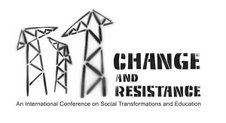Maria Mendel
Uniwersytet Gdański
The presentation refers to the research work conducted under the umbrella of European Commission project called “The Homelessness Agenda”. In the light of heterotopic perspective in which its subject is rooted, this presentation locates itself in the filed of ‘pedagogy of place’. Such place-conscious or place-based pedagogy means always pedagogy which is full of sensitivity about pre-scientific space, which is based on educational interruption of dialectical relationship between human-being and his world that never exists externally, behind of him.
The text is focused on the issue of homelessness as social institutional practices that are always ritual in their essential meaning regarding to the changes in the individual or the social subject.
One of the analytical categories taken into consideration in the research mentioned above is ‘Legal world’.
I will present selected parts of the analysis concentrating on the ritual processes which constitute the heterotopy of homelessness and create possibilities of change of this category in both individual and social dimensions.
The pedagogical work on rituals creating the heterotopy of homelessness could brake the vicious circle of social reproduction of privileges and marginalisations, and might significantly change current conditions of social life.
Social change in transition system
Miron Kłusak, Instytut Politologii UG
main theses:
Inevitability of authoritarian system breakdown
Adequacy problem of structural changes
Economic conditioning of political changes
Strains and social conflicts in new political structures
Properties of social change
Political consequences of social tension
Abstract:
Transition from monopoly to freemarket system meant necessity of structural changes. The freemarket economy started conditions for making choices. However, freedom resulted in inequality and social, economical and political conflicts. A society shaped in monopoly conditions was not adjusted to competition and private property. New changes did not bring new ideas. Building of new model of society demanded fundamental structural, political, economic and social changes.
main theses:
Inevitability of authoritarian system breakdown
Adequacy problem of structural changes
Economic conditioning of political changes
Strains and social conflicts in new political structures
Properties of social change
Political consequences of social tension
Abstract:
Transition from monopoly to freemarket system meant necessity of structural changes. The freemarket economy started conditions for making choices. However, freedom resulted in inequality and social, economical and political conflicts. A society shaped in monopoly conditions was not adjusted to competition and private property. New changes did not bring new ideas. Building of new model of society demanded fundamental structural, political, economic and social changes.
Subscribe to:
Comments (Atom)
